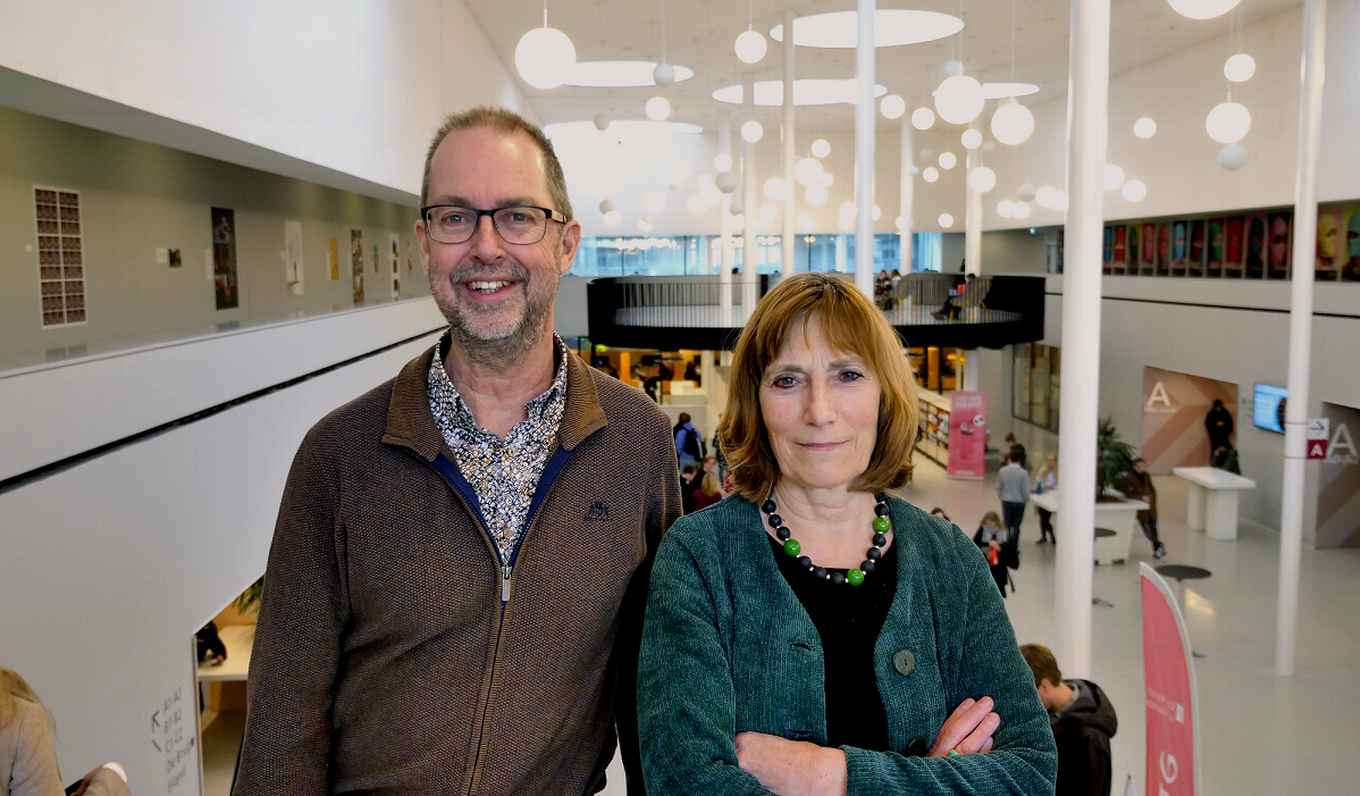'We're all guardians of our own academic integrity'
An interview with two of teh UvA's Confidential Advisers for Academic Integrity
10 March 2020

When asked to define acting with academic integrity, Ed offers an example from his own career. 'I was working as a reviewer, and someone sent me a manuscript detailing an endless debate. It needed serious editing, but the debate contained at least 10 references to articles I had written. It was pretty good for my own citation score, in other words. I must admit there was a little devil on my shoulder. It's moments like those where you're challenged to show real integrity. In other words: to be honest, meticulous, transparent, independent and responsible. If you fail to do that, you're simply not acting with integrity.'
‘Those five principles are the foundation for professional academic conduct’, Annette adds. ‘They're recorded in the Netherlands Code of Conduct for Research Integrity, which is basically our bible.’
There's a universally accepted definition of academic integrity?
'That's true in terms of the normative framework, but there are some grey areas', Annette continues. 'Every now and then, I get complaints from someone who disagrees with the order in which a publication's authors have been listed. However, the weighting procedures for contributions to publications aren't always entirely clear. The matter may be a difference of opinion between the authors.' 'However, situations where a department head has been systematically riding an author's coattails without contributing anything can definitely be classified as a violation of academic integrity. All the more so, since someone in their position should know better', Ed adds.
What are the most severe violations you come up against?
'Researchers who fabricate and falsify data', Ed explains. Those are both mortal sins. Fabricating or falsifying data means you're consciously misdirecting your fellow academics. In my discipline, it can even impact patient care. Plagiarism is also considered a mortal sin in the academic community. These three violations, referred to as 'FFP', all negatively impact the advancement and reputation of science and academia. Although it doesn't constitute an actual violation, sloppy science is also harmful. Examples include poorly thought-out research designs or poor scientific data management. While these cases are less serious, they're also far more common.'
'Obstructing scientific progress is always a mortal sin', Annette continues. 'Scientists aren't here to glorify themselves, they're here to produce knowledge. As an academic, you should feel that responsibility in every fibre of your body and communicate it to the outside world. For example, if you know someone isn't playing by the rules, it's your responsibility to report it. If you don't, you're being negligent, which means you're also culpable.'
Why do researchers ultimately end up violating academic integrity?
'As we know from experience, academic integrity violations are seldom isolated events', Ed sighs. 'Many cases involve a combination of factors, or situations where someone was in trouble from the outset. Academic integrity also tends to intersect with social safety. Examples include situations where a supervisor coerces their PhD candidate into violations, such as pressuring potential trial subjects to take part in a study. Standing up to that pressure takes real courage on the part of the PhD candidate.'
Annette adds: 'our scientific system definitely has some built-in perverse incentives. There's a lot of pressure to publish, and scientific journals generally aren't interested in replication studies or studies without appealing results. Newspaper editors also prefer attention-grabbing headlines. Unfortunately, scientific results simply aren't always exciting. If you want to get published despite those obstacles, it can become very tempting to enhance the results or present them with a bit more certainty than you can actually justify. You need to learn how to cope with that sort of pressure.'
Is there enough attention for academic integrity in general?
‘No’, Ed and Annette reply in unison. Ed explains: 'Most Bachelor's programmes spend a few hours on the subject as a part of their mentorship programme, but that's about it. Students are generally aware what plagiarism is and know where to find the scanner. They can check whether they're working within the standards, but that obviously doesn't answer the larger questions about the essence of academic integrity.
Should everyone be memorising the code of conduct?
'Acting with integrity is generally a matter of following your intuition', Ed admits. 'While you would hope researchers stick to professional standards of their own accord, it can be useful to read up on the code of conduct from time to time. It's a well-written document that includes a set of 61 crystal-clear guidelines.
What role do you play as Confidential Advisers on Academic Integrity?
‘We answer questions, inform people, mediate in conflicts and help people file complaints with the Academic Integrity Committee where necessary, Anette explains.'It's important to us that people feel we're approachable and accessible. Any conversations you have with us are entirely confidential. It never hurts to drop by, in other words.'
‘I'm also trying to free up time so I can give courses on academic integrity’, Ed adds. 'I feel it's our duty to proactively promote academic integrity.'
Does that make you the guardians of academic integrity?
‘I suppose you could call us that’, Ed tells me, ’and you'd have a nice headline for your article, but everyone engaged in research and academia is basically the guardian of their own integrity.' 'Which also makes them gatekeepers of scientific progress in general', Annette adds.